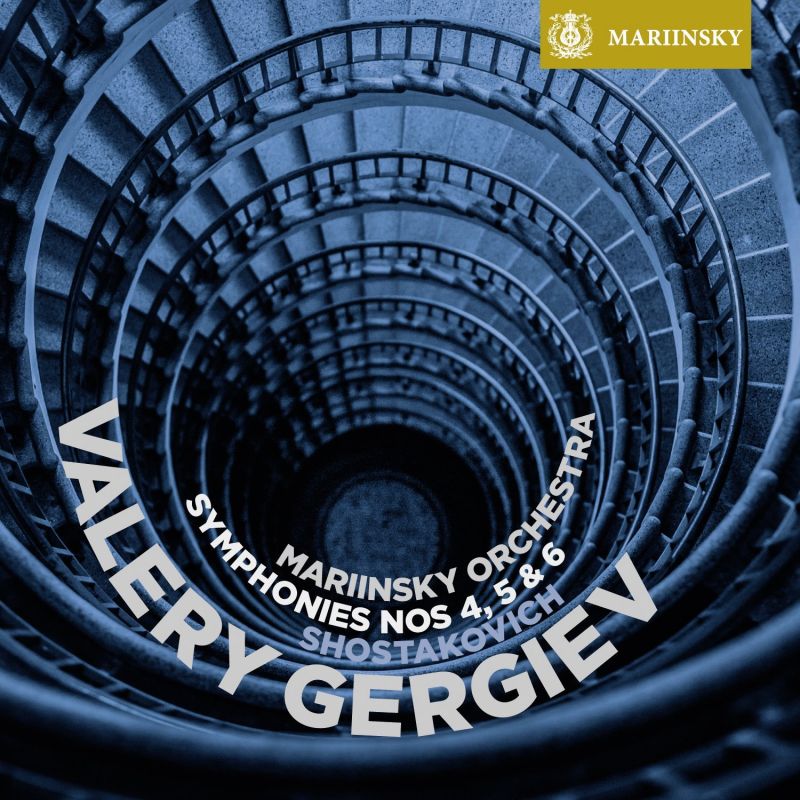SHOSTAKOVICH Symphonies Nos 4 - 6
View record and artist detailsRecord and Artist Details
Composer or Director: Dmitri Shostakovich
Genre:
Orchestral
Label: Mariinsky
Magazine Review Date:
Media Format: CD or Download
Media Runtime: 135
Mastering:
DDD
Catalogue Number: MAR0545

Tracks:
| Composition | Artist Credit |
|---|---|
| Symphony No. 4 |
Dmitri Shostakovich, Composer
Dmitri Shostakovich, Composer Mariinsky Orchestra Valery Gergiev, Conductor |
| Symphony No. 5 |
Dmitri Shostakovich, Composer
Dmitri Shostakovich, Composer Mariinsky Orchestra Valery Gergiev, Conductor |
| Symphony No. 6 |
Dmitri Shostakovich, Composer
Dmitri Shostakovich, Composer Mariinsky Orchestra Valery Gergiev, Conductor |
Author: David Fanning
The conspicuous success is the Sixth Symphony. Previously weighed down by a lethargic middle movement, it is now compelling from first note to last. That scherzo – now a helter-skelter 5'16" as opposed to 6'47" – is if anything too fast for comfort. But that’s part of an overall vision of the work in which discomfort of all kinds is a way of life.
Gergiev himself has pointed out that he does not regard it as an option in this repertoire to keep harping on with the same crude struggles. However, there is a price to pay. The opening of the Fourth Symphony now has more onward drive and a little less industrial-strength accentuation, and in its continuations the threads of the texture are more carefully teased apart. But all this is at the cost of the shock and awe that the classic recorded performances (Kondrashin above all) convey. Although the long-delayed second subject on the bassoon feels as though it ‘belongs’ more than it usually does, it has little of the dazed quality that the finest performances find as part of a more bizarre and challenging symphonic drama. Similarly, the giant cuckoo-calls are tamed, and the crazed string fugue, apart from being less well played than before, hangs fire, its climax further hamstrung – as before – by a jarring application of the brakes. The second movement gets straight down to business but it too lacks colouristic and intonational range – a symptom of a broader lack of dramatic tension. In the finale, the thinness of string tone again places limits on the musical horizons before any broader issues of interpretation kick in. Here the scherzo section is technically ragged, without any compelling reason (such as reckless drive) for that to be so. There is a good deal of dash and flair in the central divertimento but by then the performance, for me at least, is a lost cause.
The finale of the Fifth is remarkably convincing in its initially panicky onrush and there is much to admire in the punchy scherzo and searching slow movement. But the very opening of the symphony is fuzzy in ensemble, and balance in the paragraph that follows feels somewhat arbitrary. As a whole, the first movement never comes fully into focus.
Another mixed bag, then, though the Sixth Symphony is undoubtedly a version to be reckoned with.
Discover the world's largest classical music catalogue with Presto Music.

Gramophone Digital Club
- Digital Edition
- Digital Archive
- Reviews Database
- Full website access
From £8.75 / month
Subscribe
Gramophone Full Club
- Print Edition
- Digital Edition
- Digital Archive
- Reviews Database
- Full website access
From £11.00 / month
Subscribe
If you are a library, university or other organisation that would be interested in an institutional subscription to Gramophone please click here for further information.




